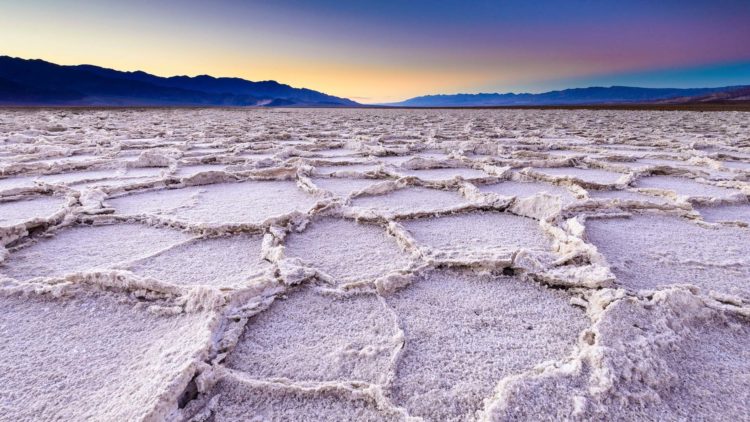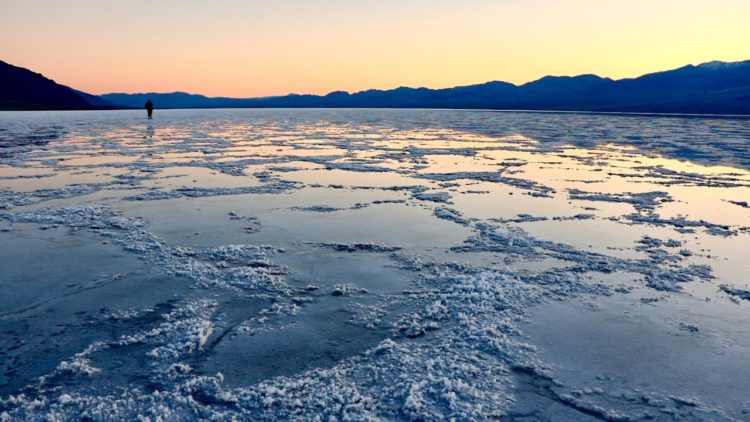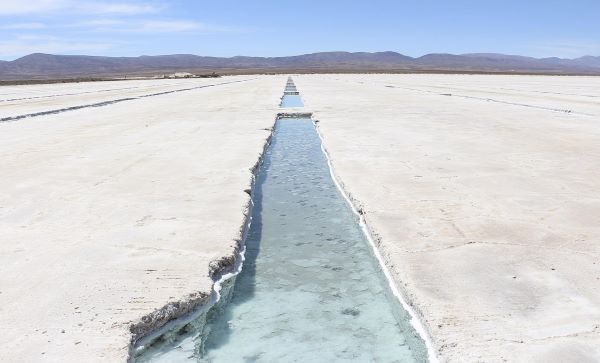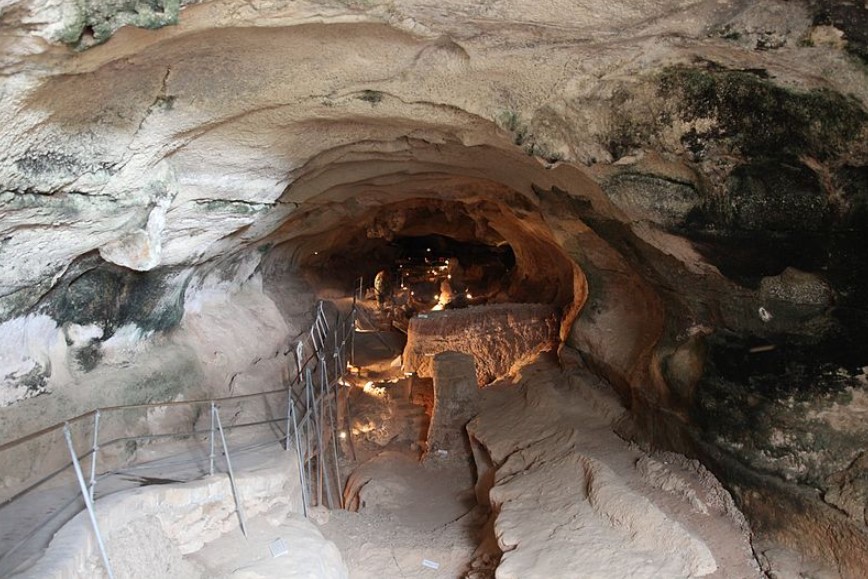In Death Valley, there is an endorheic basin called Badwater Basin, the lowest point in North America, with a depth of 282 feet below sea level. The Badwater basin comprises a small spring-fed pool next to the road in a sink. The accumulated salts of the surrounding basin make it undrinkable, thus giving it its name. The pool site itself does have animal and plant life, including pickleweed, aquatic insects, and the Badwater snail.
In the area close to the Badwater basin, where water is not always present at the surface, repeated freeze-thaw and evaporation cycles slowly push the thin salt crust into hexagonal honeycomb shapes. This is a popular site for tourists because of the sign marking “sea level” on the cliff above the Badwater Basin.
Badwater never dries out totally and even manages to support a unique species of fish: the Death Valley pupfish, a small bluish creature that has evolved to survive in the hot saline conditions. The salt pools, several routes toward the mouth of the valley before sinking into the sand.
Moreover, the pool is not the lowest point of the basin; it is actually several miles to the west and varies in position subject to rainfall and evaporation patterns. The salt flats are hazardous to traverse; the sign marking the low point is at the pool instead. The area has extreme temperatures most of the year, but the humidity from the evaporation of salty water makes all movements more difficult than usual.
The shade temperature crosses above 120°F, and standing for a while is really unforgettable in the stifling heat. Be careful when you are walking, as some of it can be brittle and break. As soon as you get a large concentration of salt, you can start to see the individual crystals that form with the life cycle of rain and evaporation.
At Badwater Basin, significant rainstorms flood the valley bottom periodically, covering the salt pan with a thin sheet of standing water. This is the greatest evaporation potential in the United States, meaning that a 12-foot lake could dry up in a single year. When the basin is flooded, some of the salt is dissolved; it is redeposited as clean crystals when the water evaporates.
Further low points aren’t usually popular tourist sites, but when you get to claim to be the lowest point in the United States, it doesn’t matter if you are depressed or just a geography nut; it’s a site to see. So, no trip to Death Valley would be complete without a stop at the lowest point of Badwater Basin, right in the heart of Death Valley National Park.
Read More: Mount Tongariro – New Zealand Volcanic Zone











